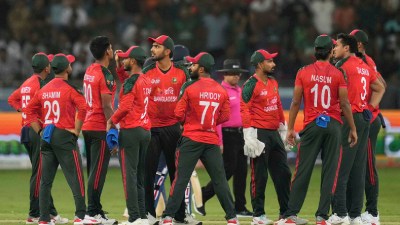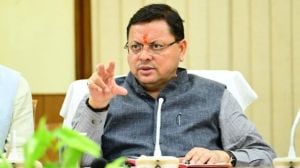The steel in the frame
WHEN Sahdev Vohra joined the Indian Civil Service in 1941, World War II was on. So instead of going to England for his probation, he was sen...

WHEN Sahdev Vohra joined the Indian Civil Service in 1941, World War II was on. So instead of going to England for his probation, he was sent off to Dehra Dun along with 19 others. 8216;8216;Tents were set up for us at the Forest Research Institute,8217;8217; remembers 86-year-old Vohra who retired as secretary, Rehabiliation Ministry, in 1976.
Much has changed since Vohra first joined the service. India has become free, the colonial ICS has graduated to the Indian Administrative Service and an economic revolution has changed the very way we look.
Vohra was one of the five Indians to have entered the ICS directly that year. 8216;8216;In our times there were fewer opportunities. I used to wonder what I would do if I didn8217;t get a sarkari job. I often dreamt of having a bookshop,8217;8217; says Vohra. Then he set off to Ambala for his first posting as assistant commissioner. 8216;8216;I was a city boy and I suddenly found myself looking after land revenue and crops,8217;8217; says Vohra, who grew up in Lahore and now lives in Delhi8217;s quiet diplomatic quarter, Vasant Vihar.
And maintaining law and order was as big a responsibility then as it is now. 8216;8216;In 1946, when Jinnah declared direct action so many processions were taken out. Maintaining law and order was a real challenge.8217;8217;
Then there was the freedom movement. 8216;8216;I was in Ambala in 1942 when 21 British passengers on the Shimla-Kalka train were killed. The whole thing was so unexpected. It was a warning notice to the British empire.8217;8217;
Those were also years of depression and famine. In 1943 officers were sent off to Bengal on famine duty. 8216;8216;I was in Feni in what is now Bangladesh. There was famine and then the Japanese were bombing Burma. Here I was a sub-divisional officer in the midst of all this.8217;8217;
Through all these years, India was inching towards independence. But there was hardly a time when he thought the English were being discriminatory. 8216;8216;The British may have ruled with an iron hand but it was covered with a velvet glove. You never saw the iron hand.8217;8217;
Pre-independence to post-independence has been a long road but the changes that came about in the services didn8217;t happen overnight. 8216;8216;I remember when I was the district magistrate of Ferozepur in 1953, Harkishen Singh Surjeet was a communist leader there. Sam Manekshaw was the brigadier in charge. He would often cycle down to my office to discuss things. That no-fuss attitude was a Raj legacy.8217;8217;
But there was also a superior attitude. 8216;8216;The system is more democratic now. In the British times there was a certain mai-baap attitude, that I am the protector. Now the voter is king so he hesitates less to approach an officer.8217;8217;
But the most dramatic shift he finds in the system over the decades is the one in the relationship between bureacrats and politicians. 8216;8216;It used to be smooth. Earlier, the politician was not seen as an adversary.8217;8217;
As for the future, Vohra8217;s philosophy is a pragmatic mix of resignation and hope. 8216;8216;If there was no bureaucracy it would have been invented. One needs a system for governance. But what you want it to be, you have to decide.8217;8217;
- 01
- 02
- 03
- 04
- 05































